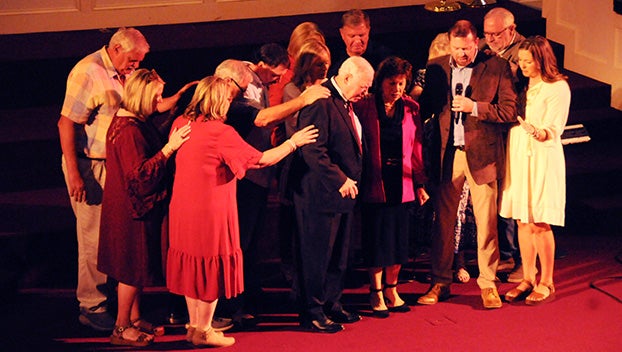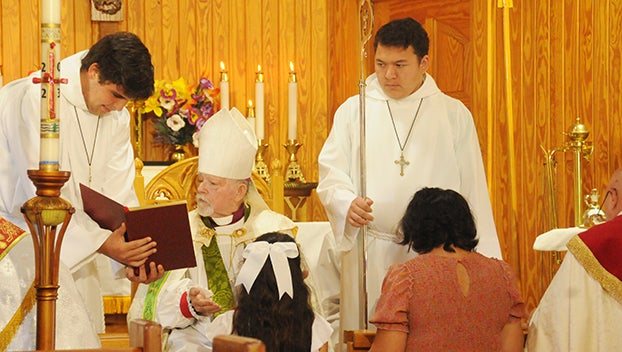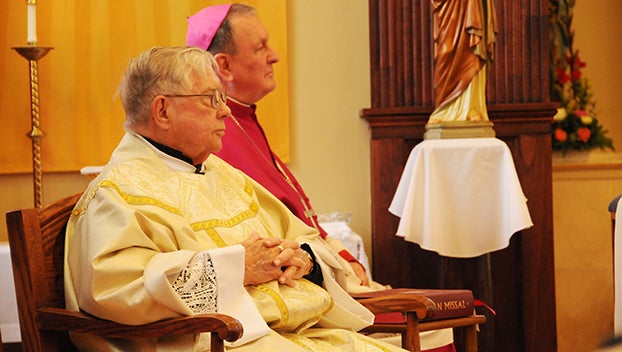Pray like Jonah
Published 8:45 am Monday, August 29, 2011
It happened the other day when I was at a restaurant for lunch. A family sat down and everyone bowed their heads in prayer and thanked God for the food they were about to eat. I was close enough to hear what they were praying and while it wasn’t a long prayer, it was a heartfelt acknowledgment of God as the giver of gifts. It sounded like a genuine response of gratitude. In a restaurant where few prayers get offered, this family stood out. It got me thinking about prayer. This for many is a recognized and acceptable time to pray, but I wonder if prayers over a meal in a public place translates to praying authentic prayers when we are alone? I wonder if we request prayer for the heart issues we deal with and actually pray for those we say “I’ll pray for you” to? I wonder if a relationship with God is cultivated through prayer or if prayers are just cries for help when we get in a jam?
A great prayer from the Bible that is often overlooked is found in the story of the Prophet Jonah in the second chapter. The story of Jonah is often reduced to a kids story about a guy who got swallowed by a fish. Why? Because it asks us to believe what seems impossible. Yes, unbelievably, he was swallowed by a fish. But this story isn’t just about the man-swallowing fish, but the interaction between God and Jonah.
In this story, God calls Jonah to go preach to the people in Nineveh, the capital city of the Assyrians. But Jonah runs in the opposite direction. He ran because He didn’t want those Nineveh people to be shown mercy from God. He believed they didn’t deserve to be shown mercy from God because they were a ruthless and barbaric people who had caused the Israelites much suffering. So Jonah boarded a ship headed in the opposite direction. According to the story, God was unwilling for Jonah to run away in disobedience so He sent a violent storm. All of the pagan sailors were praying to their gods, but Jonah was asleep (likely escaping a guilty conscience). When he finally woke up, he confessed his disobedience to them and requested to be thrown overboard so the storm would relent. This is where the fish enters the story. Jonah was thrown into the sea and the Bible says a “great fish” swallowed him. This was actually a good thing because it ultimately saved his life and was the catalyst for his obedience in agreeing to go preach to the people of Nineveh.
Ultimately, God pursued Jonah and sent the fish to rescue Him from himself and his own selfishness. This was an act of love and not punishment. This was an intervention because God cared about Jonah. God was concerned for Jonah’s soul as well as the Assyrians which is why He didn’t stand passively by as Jonah ran the other direction. Lamentations 3:22-23 22 Because of the LORD’s great love we are not consumed, for his compassions never fail. 23 They are new every morning; great is your faithfulness. God ultimately showed His faithfulness to each of us as well when He sent His Son Jesus to rescue us providing forgiveness for us through His death on the cross.
The Bible says Jonah spent three days in the belly of the fish. It must have been a horrible experience trapped there. Something happened to Jonah during this time. His heart softens. He reestablishes relationship with God and he finally prays (for the first time in the story). There is hope, humility and confidence in God in this prayer. While there are no direct words of confession recorded, I believe they are imbedded within the prayer. It communicates gratitude to God for using the fish to save his life. Through this experience, God taught Jonah humility. Jonah is, in a sense healed, stretched, and ruined of his own selfish ambitions. Through prayer, Jonah repented and acknowledged God’s sovereignty.
Prayer has the power to change us. Prayer aligns my will to God’s will. It ultimately says, “Not my will, but Your will be done.” God uses difficult situations, storms and fish, (we all experience these on some level) to get our attention and direct people to pray. This reconnects people to Him and reestablishes our relationship with Him. Through difficult situations He directs people to surrender to Him.
I wonder what would have happened if Jonah would have taken the opportunities (encouraged by the pagan sailors) to repent and ask for forgiveness and made plans to go to Nineveh, if the fish could have been avoided. I guess we’ll never know. But we need to take a lesson so as not to require “fish experiences” to get us to pray and reconnect with God.
Frankly, I don’t think we understand the power of prayer or how much our sin hinders our prayers. I also don’t believe we really understand how God works through prayer. What I do know is that we need humility in prayer. Coming to the end of ourselves where we trust in God and believe that He is good. It is a confidence in Him and an attitude of humility. Hebrews 4:16 says, “Let us then approach the throne of grace with confidence, so that we may receive mercy and find grace to help us in our time of need.” Like Jonah, we need to come to the point of being yielded and surrendered and understanding it isn’t all about us, but rather about God.
May our prayers be more than at meals or when we get in difficult situations, but rather the foundation of a relationship with God. May we, through prayer, build our relationship ever closer with God, trusting in Him and believing that He is good. May we take a lesson from the story of Jonah and pray in humility and confidence. But unlike Jonah, let’s not wait for “storms” or “fish” but let’s keep our relationship with God strong through prayer.




